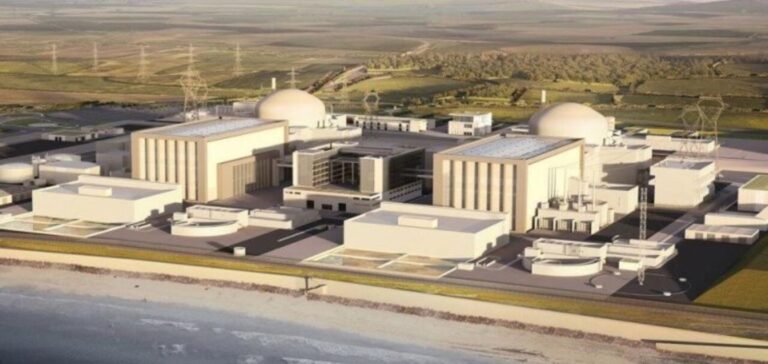The construction of two European Pressurised Reactors (EPR) at Hinkley Point in England is a “financial sinkhole” for Électricité de France (EDF), according to Aurélie Trouvé, Chair of the Economic Affairs Committee, and Charles de Courson, General Rapporteur of the Budget. The MPs made the statement following a supervisory mission at the Directorate General of the Treasury regarding the project’s financial trajectory.
The estimated cost of the project now stands at £46 billion (approximately €54 billion/$57.6 billion) by 2030, 85% of which is currently borne by EDF. At its launch in 2016, the initial budget was £18 billion. AFP reported these figures on April 28, relaying concerns voiced by the two lawmakers at the National Assembly.
Early warnings about financial risks
Aurélie Trouvé stated that internal memos from 2015, available at the time to the French government, which owned 85% of EDF, had already raised red flags over underestimated costs. “The government knew,” she said, criticising the overly optimistic financial projections set at the project’s inception. The State now holds 100% ownership of EDF.
The MPs also noted that, based on information gathered during their oversight visit, the Ministry for the Economy and Finance (Bercy) does not possess the contract governing EDF’s partnership on the project, raising further questions about project governance.
Parliamentary debate highlights lack of consultation
Charles de Courson called the situation a “democratic anomaly”, condemning the lack of parliamentary consultation despite the major budgetary implications of the nuclear programme. He stressed that “these decisions are escaping Parliament even though they have direct consequences on public finances.”
Their comments were made on the sidelines of a non-binding debate at the National Assembly on France’s energy policy. This debate comes ahead of a decree expected to be published later this summer outlining the country’s energy roadmap for the next decade, which includes a renewed focus on civil nuclear power.






















